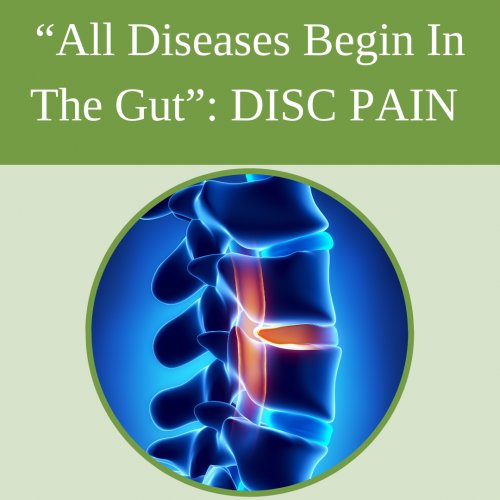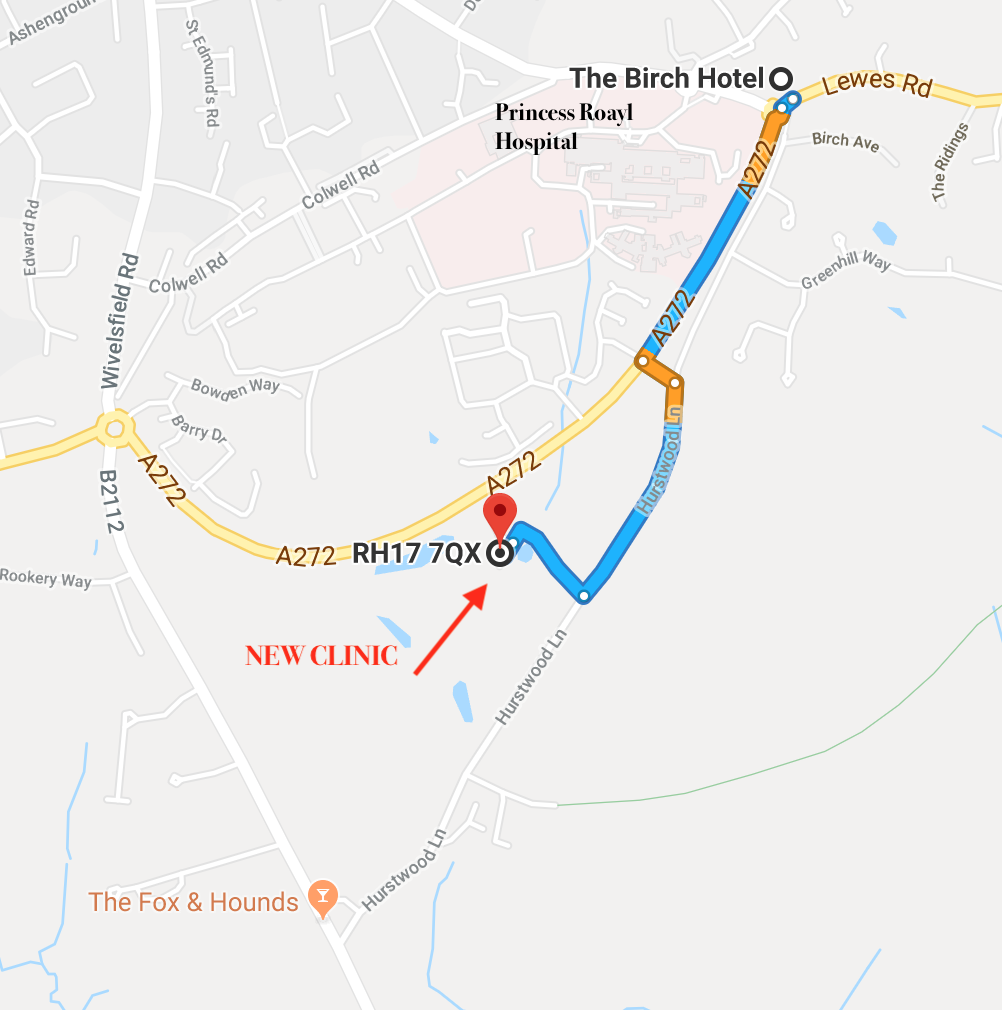This is the first of a series of newsletters I’m going to write based on “All Diseases Begin In The Gut” this one refers to low back pain, specifically disc disease possibly having an origin from the gut.
Again, it seems science is catching up with old Naturopathic principles. This fascinating research is what a holistic view of the body would already understand through experience and observation. But now we have the science to validate it too.
The message from this newsletter is that if you have back pain (or joint pain and inflammation) then you might consider looking at your gut healthtoo. This would be particularly relevant if you have a gut issues, like IBS, IBD, GERD, food allergies etc. However, you may not actually have to have symptoms for there to still be an imbalance in digestion and absorption.
Following are a collection of science based studies illustrating the link between gut health and disc disease and a reference to the study for each if you fancy digging deeper. However, I have summarised the research for you so you don’t have to.
After this Blog is a reminder of the £99 back to school offer for a facial and massage combo with a £40 discount.
All Diseases Begin In The Gut: Back Pain
The gut-disc axis is a fascinating and emerging field of research that highlights the intricate relationship between the gut microbiome and intervertebral discs in the spine. Recent studies have shed light on how dysbiosis (an imbalance in good and bad bacteria) in the gut can affect the health and integrity of intervertebral discs, potentially leading to conditions like intervertebral disc degeneration and low back pain. In this blog post, we'll delve into the scientific findings from several key studies, providing a summary and analysis of each.
This study examined the presence of a unique microbiome within intervertebral discs. Researchers found that dysbiosis, or an imbalance in the microbiome, plays a critical role in determining the health or disease state of these discs. Dysbiosis was linked to conditions such as intervertebral disc degeneration. The study emphasizes the importance of maintaining a balanced gut microbiome to support spinal health.
In summary the "bad" bacteria from your gut gets into your disc inbetween your vertebrae!
"Human intervertebral discs harbour a unique microbiome and dysbiosis determines health and disease." - Rajasekaran et al. (2020)
In this study the hypothesis that the gut-disc axis could be a significant contributor to intervertebral disc degeneration and low back pain. Their study provided evidence suggesting that disruptions in the gut microbiome can indeed lead to these spinal conditions. This work underscores the need for further research into therapeutic interventions targeting gut health to alleviate back pain.
"Gut-disc axis: a cause of intervertebral disc degeneration and low back pain?" - Li et al. (2022)
In this next trial, researchers investigated the use of probiotics, specifically Lactobacillus Rhamnosis GG, for treating chronic low back pain. The study demonstrated promising results, suggesting that probiotic supplementation could be a valuable approach in managing back pain. Probiotics may work by modulating the gut microbiota, which in turn affects spinal health.
"Probiotics for chronic low back pain with type 1 Modic changes: a randomized double-blind, placebo-controlled trial with 1-year follow-up using Lactobacillus Rhamnosis GG." - Jensen et al. (2019)
Wang and colleagues explored how Lactobacillus paracasei S16 supplementation can alleviate lumbar disc herniation. Their findings suggested that this probiotic exerts its effects by modulating both the inflammatory response and the composition of the gut microbiota. This study highlights the potential of probiotics in preventing and managing spinal conditions.
"Lactobacillus paracasei S16 alleviates lumbar disc herniation by modulating inflammation response and gut microbiota." - Wang et al. (2021)
This study investigated the link between gut microbiota composition and back pain, particularly in overweight and obese individuals. The research revealed a significant association between altered gut microbiota and back pain in this demographic. This underscores the importance of maintaining a healthy gut to prevent and manage low back pain, especially in individuals with weight issues.
"Altered gut microbiota composition is associated with back pain in overweight and obese individuals." - Dekker Nitert et al. (2020)
In conclusion the gut-disc axis is an area of research that has the potential to transform our understanding of spinal health. These studies collectively show the importance of a balanced gut microbiome in maintaining the health of intervertebral discs and preventing conditions like disc degeneration and low back pain. Probiotics, in particular, appear to hold promise as a therapeutic intervention for managing these spinal conditions by modulating the gut microbiota.
The bottom line is that any gut issues could be contributing to your back pain, especially if it is longterm, chronic, persitent pain.
If you have any questions about this newsletter or would like help in Naturopathically investigating and treating your gut issues or chronic pain then just reply to this email or email Christian on christian@theperrymount.com
Christian would use a biofeedback device to help pinpoint issues and achieve a targeted approach using supplements to help correct your gut issues. Read more about the Avatar scan here:
www.theperrymount.com/avatar
Blog post | The Perrymount Clinic 01444 410944
Call to book or for more information 01444 410944

All Diseases Begin In The Gut: Back Pain


The Perrymount Clinic
Unit 5
Hurstwood Grange
Hurstwood Lane
Haywards Heath
West Sussex
RH17 7QX
01444 410944
info@theperrymount.com
